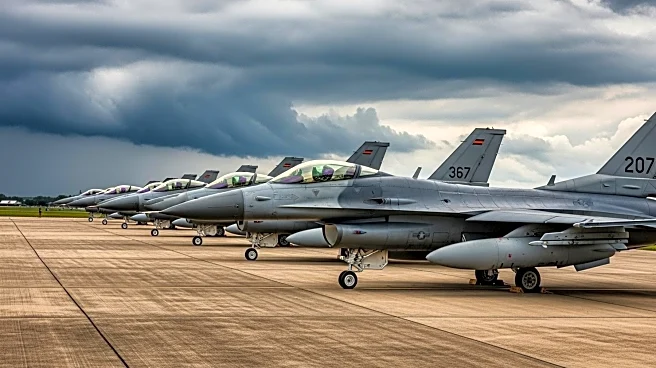What is the story about?
What's Happening?
Russia has intensified its missile and drone attacks on Ukraine, focusing on the western city of Lviv. The strikes have resulted in the deaths of five people, including a family of four in Lapaivka. Poland responded by scrambling fighter jets to secure its airspace, with NATO aircraft also deployed. The attacks have disrupted public transport and power supplies in several regions, including Lviv and Zaporizhzhia. Ukraine's President Zelensky has called for increased air defense support to counter the aerial threat.
Why It's Important?
The escalation of Russian attacks poses a significant threat to Ukraine's infrastructure and civilian safety, potentially leading to further destabilization in the region. Poland's military response highlights the growing concern among NATO members about the proximity of Russian aggression. The situation could lead to increased military readiness and diplomatic efforts to prevent further escalation. The impact on Ukraine's energy infrastructure could have broader implications for European energy security as winter approaches.
What's Next?
Ukraine may seek additional military support from NATO and other allies to bolster its defenses. The U.S. decision to support Ukraine's deep strikes into Russian territory could provoke a strong response from Russia, potentially escalating the conflict. Diplomatic efforts to secure a ceasefire or peace agreement may intensify as stakeholders seek to stabilize the region. The humanitarian impact of the conflict may prompt increased international aid and support.
Beyond the Headlines
The attacks raise ethical concerns about the targeting of civilian areas and infrastructure critical to daily life. The conflict's impact on global energy markets and political alliances could have long-term implications for international relations. The humanitarian crisis in Ukraine may worsen, prompting increased aid and support from global organizations.

















